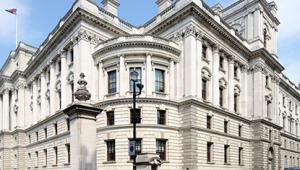PAC chair Margaret Hodge said the ‘Big Four’ advisory firms had an ‘unhealthily close’ relationship with Whitehall, which created the perception of undue influence on the tax system.
‘They second staff to the Treasury to advise on formulating tax legislation,’ she said.
‘When those staff return to their firms, they have the very inside knowledge and insight to be able to identify loopholes in the new legalisation and advise their clients on how to take advantage of them. The poacher, turned gamekeeper for a time, returns to poaching.
‘This is a ridiculous conflict of interest which should be banned in a code of conduct for tax advisers, as we have recommended to the Treasury and HM Revenue & Customs.’
Today’s report, Tax avoidance: the role of large accountancy firms, is the latest in the PAC’s attempt to highlight weaknesses in corporate tax compliance.
It notes that the ‘Big Four’ accountancy firms – PricewaterhouseCoopers, KPMG, Ernst & Young, and Deloitte – employ almost 9,000 tax advisers, bringing in an income of about £2bn a year. HMRC, in contrast, has far fewer resources. For instance, the Big Four employ between them 250 experts on transfer pricing, the mechanism that can allow multinationals to distribute their internal costs and charges to avoid taxes in some jurisdictions. HMRC has just 65.
Representatives of the Big Four were quizzed by the MPs as they collected evidence for their report. They told the committee they no longer sell the very aggressive tax avoidance schemes of the type sold a decade ago.
But Hodge said: ‘These protestations of innocence fly in the face of the fact that the firms continue to sell complex tax avoidance schemes with a little as 50% chance of succeeding if challenged in court.’
The report also criticised the current tax system as overly complex and out of date and urged the UK to take the lead in demanding urgent reform of international tax law.
Responding to the PAC’s criticisms, Jane McCormick, head of tax at KPMG, said that while the firm did provide secondees to government departments, their role was provide technical input and commercial expertise. ‘Our secondees do not write legislation or make policy decisions,’ she stressed.
At PwC, head of tax Kevin Nicholson said the large accountancy firms had an ‘important and positive’ role to play.
He said: ‘We strongly disagree with the PAC’s conclusions about the role of large accountancy firms, which seem to be based on a misunderstanding both of what we do and how we do it… We provide technical insight to government, but only when asked, and are never involved in deciding tax policy, which is a matter for government.’
Bill Dodwell, head of tax policy at Deloitte, said there had never been a conflict of interest. He added that tax advisers were already governed by a code of professional ethics. ‘We expect the next update of the code will cover this issue in more detail, to help all tax advisers understand their professional obligations.’
At Ernst & Young, UK managing partner for tax John Dixon agreed with the PAC that confidence in the tax system needed to be rebuilt. He added that corporation tax was only one of the taxes paid by companies.
‘Consideration of the contribution of multinationals to the UK needs to include non-tax factors, such as additional employment and economic growth through substantial investment, as well as the other taxes and levies that are paid,’ he said.
An HMRC spokesman said the department was winning the fight on corporate tax avoidance.
‘HMRC’s transfer pricing investigations have generated more than £4bn in extra tax revenues over the last four years,’ he said.
‘Backing HMRC’s success, last year, the government announced further investment of £77m to expand our anti-avoidance and evasion work. Much of this will be used to accelerate our challenges to multinationals’ transfer pricing arrangements and is expected to bring in an additional £2bn over the next five years.’



















